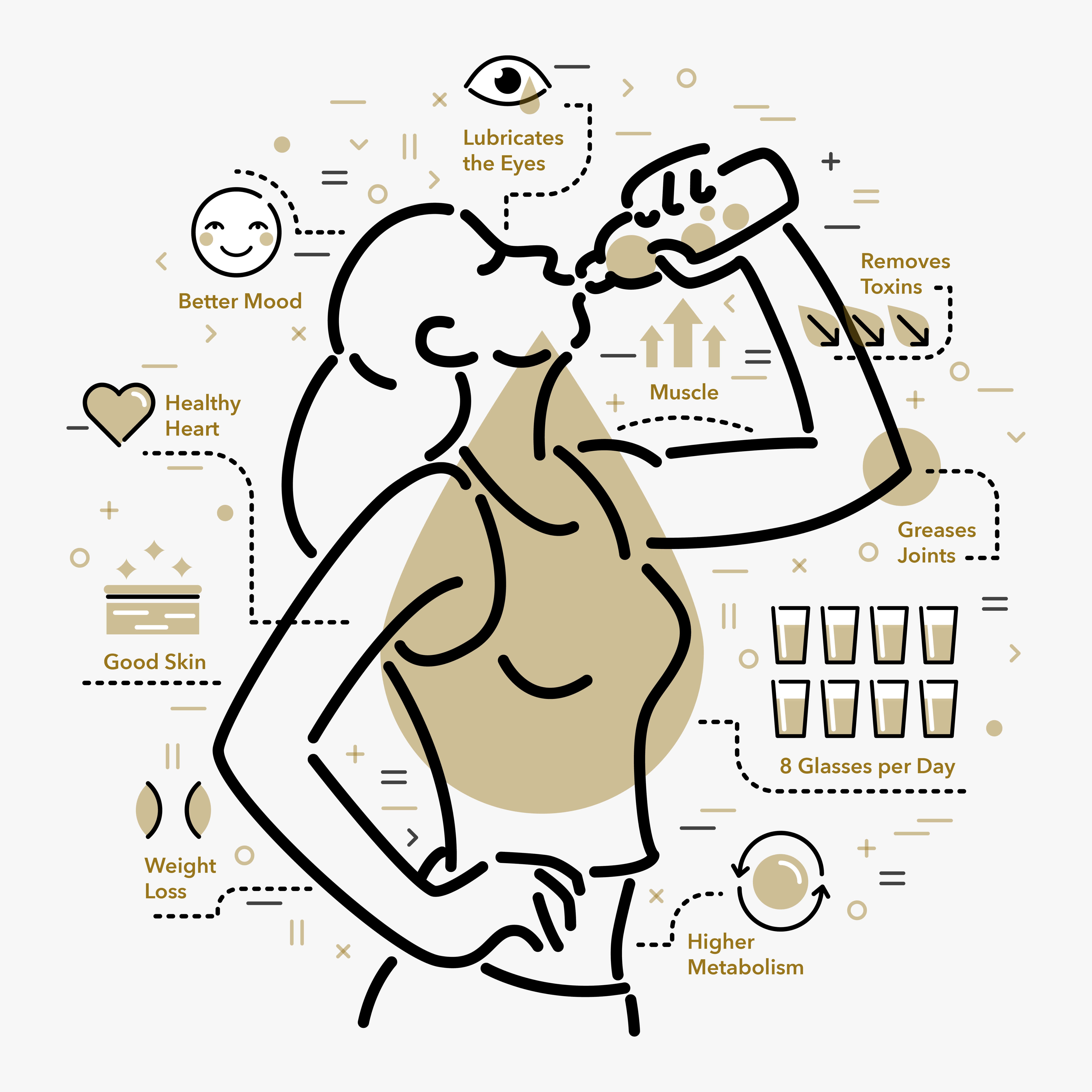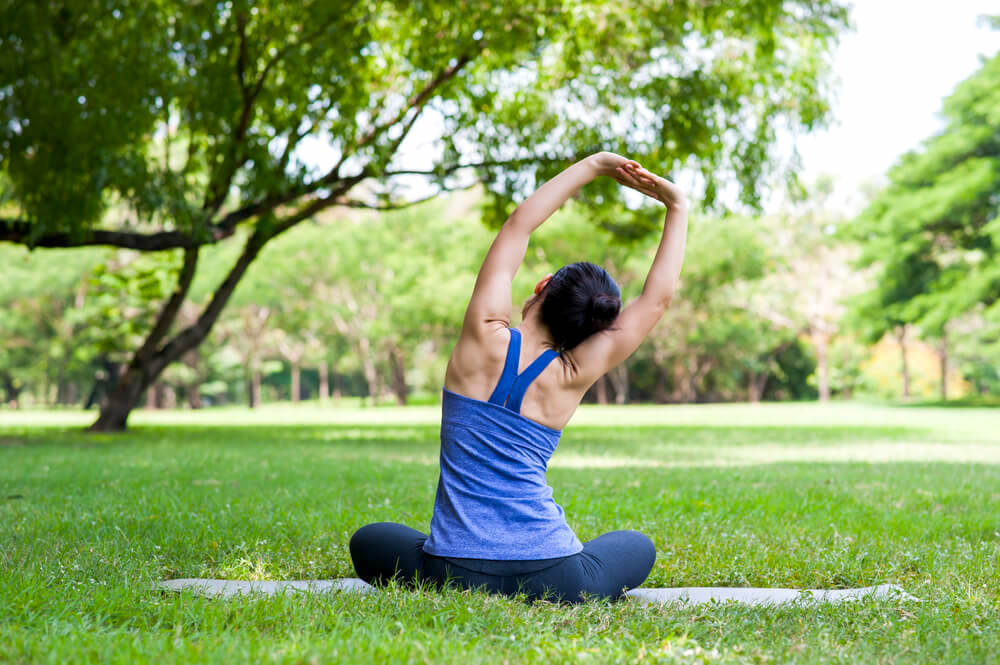How to Protect Yourself from Extreme Heat This Summer

Planning on spending a significant amount of time outdoors this summer?
If so, make sure that you know exactly how to protect yourself from the sun’s extreme heat…
Stay Hydrated
When your body is dealing with extreme heat, sweating is a common side effect. This means that your body is continuously losing water, as well as important minerals, meaning that it does not take long at all for the body to become dehydrated.
Dehydration, especially in extreme heat, can be so dangerous. This is why it is important to make sure that you are keeping your body as hydrated as possible.
How?
By drinking plenty of fluids. Even if you aren’t feeling thirsty, you should still keep drinking. If you’re being quite active, then make sure that you hydrate every 15 minutes or so. This may seem like a lot, but it is what your body needs in order to stay hydrated in the heat.

Ideally, you should be hydrating with water, whether this may be plain water or infused with fruits and herbs. Herbal teas are also a good way to go, although you will probably want to opt for an iced, rather than a hot, version.
How about sports drinks?
These can be great for hydration, because they are also able to replenish lost minerals and electrolytes, helping your body to function optimally.
Wondering if there are any drinks you should say away from?
Yes, try your best to avoid the following:
- Alcohol
- Caffeine
- Sugar-filled drinks
Although they may seem refreshing at the time, they will only end up dehydrating your body even more.
Don’t forget, you can also increase your body’s hydration levels by eating more moisture-rich foods.
These include:
- Cucumbers
- Tomatoes
- Spinach
- Melon
- Oranges
Since those foods are in season during the summer months, they should be easy enough to find!
Wear Loose and Lightweight Clothing
Heavy and tight clothing will not only be uncomfortable in the extreme heat, but it will also prevent your sweat from evaporating. This can lead to a number of problems, from yeast infections to dermatitis.
Keeping your clothing loose and lightweight will help to prevent all of this, enabling your skin to breathe and your sweat to evaporate.
Some good fabrics to opt for in the summer months include:
- Cotton – a natural fiber that allows air to circulate while absorbing moisture
- Linen – woven loosely, linen enables heat to quickly escape from the body. It also absorbs moisture but dries very quickly
- Chambray – this woven fabric is lightweight and breathable. The darker colors in particular are great for absorbing up moisture
Try to stick to natural fabrics as much as possible. Anything synthetic, such as polyester and rayon, will only end up repelling, rather than absorbing, moisture. This means that your sweat will be lingering around your body all day long, leading to the problems mentioned above.
Don’t forget, the color of your clothing is important too…
Why?
Because dark colors absorb more heat than lighter colors, meaning that lighter colors are definitely the way to go when you are in extreme heat. White, red and yellow have been shown to be the best heat-reflecting colors, while blues, blacks and purples seem to absorb the heat the most.
Keep Your Skin Protected Too
Extreme heat means that the sun’s UV rays are likely in full force.
This can be so dangerous for your skin…
UV exposure not only leads to sunburns and skin cancer, but it also accelerates the skin’s natural aging process. In fact, it is estimated that up to 90% of facial aging is caused by sun exposure. Having your skin out in the sun unprotected means that you will experience everything from fine lines and wrinkles to sagging skin and dark spots much earlier in your life than you otherwise would have.
So, how do you keep your skin protected from the sun and the heat?
Your first step would be ensuring that you are wearing a broad spectrum sunscreen with an SPF of at least 30. If you have sensitive skin and are prone to sunburns, you will probably need a higher SPF.
One mistake that many people make when it comes to sunscreen is…
Forgetting to reapply this during the day! You may be proud of yourself for remembering to slather on your sunscreen before you leave the house, but the effects of this will only last you for a few hours. After this, unless you re-apply, your skin will then be highly vulnerable to sun damage.
Sunscreen should be applied all over your face and body, but it is worth noting that the skin on the face can be up to ten times thinner than the skin on the rest of the body.
This means that it’s always a good idea to moisturize your skin while providing sun protection, so that all the moisture in your skin will not be easily lost to the environment. Moisturizers infused with SPF, like the 24K Bio-Brightening Skin Tone Moisturizer SPF 30, are a great way to boost moisture while providing SPF defense, though you should also remember to reapply regularly.
Thinner facial skin also means that you should take a few extra measures when it comes to protecting the delicate skin on your face from the sun…
Begin by making sure that you have a wide-brimmed hat with you. This will shade your face, preventing the sun’s UV rays from coming into contact with your skin. Some UV-blocking sunglasses would also be extremely beneficial, especially since the skin around the eyes is even more fragile than the already-delicate skin on your face.
Need some extra help with sun protection?
There are actually a few sun protection apps that you could download.
Wondering how these work?
They offer up personalized sun protection advice, basing this not only on real-time UV forecasts, but also on your own personal risk factors, such as skin tone and any skin conditions you may be dealing with. Research has shown that these apps can actually be extremely beneficial in encouraging people to better protect themselves from the sun, but you do need to make sure that you use the app regularly.
Are you worried about dryness and dehydration affecting your skin?
You can avoid this by making sure that the skin care products you are using contain plenty of humectants.
Humectants are ingredients that attract moisture from the air and deliver these molecules to your skin, helping to keep your skin’s moisture levels topped up.
Examples of effective humectants include:
- Hyaluronic Acid – this molecule is naturally present in the body, and has the ability to hold up to 1000 times its weight in water
- Glycerin – another natural humectant, glycerin provides deep hydration
- Aloe Vera – this natural humectant quickly penetrates into the skin, providing hydration both at the surface as well as at a deeper level
Take Time Out to Cool Off
This may sound overly simple, but taking some time out to cool your body off can really help to counter the effects of extreme heat.
You are probably wondering how you should actually go about doing this…
An easy way would be to head into the shade, even if this shade is only underneath an umbrella.
If you’ve got a cold bottle of water nearby, try placing this against your pulse points, such as those behind your knees and neck. A cold compress would work for this too. For those of you planning on spending the entire day outdoors, it may be worth investing in a small fan. There are many solar-powered models available, and these are great for helping to cool the body down a bit.
If you have access to a shower, then a cold shower can also really help to lower your body’s temperature. It will also clear away the sweat and dirt that has stuck to your body over the course of the day, resulting in you feeling completely refreshed.
Air conditioning will work well too, and, if you don’t have access to air conditioning of your own, you could always head to a public air-conditioned space, such as a local library or shopping mall. Some areas that are prone to extreme heat will offer up heat-relief shelters for the public to use, and these are definitely worth checking out. If you don’t know where your nearest one is, contact your local health department for more information.
Don’t Exercise During the Hottest Hours of the Day
Trying to stay fit by regularly exercising?
That’s great, but you may need to adjust your routine a bit when dealing with extreme heat.
How?
By making sure that you don’t exercise during the hottest hours of the day. Generally, this would be between 11am and 3pm, but it does depend on your exact location.
Why shouldn’t you exercise during these times?
Because exercise will cause you to sweat, which you will already be doing plenty of in the heat.
What happens if you sweat too much?
Dehydration becomes a very serious risk. Exercising for too long in the sun can also lead to heat stroke.
Don’t worry, you don’t need to cut out the exercising altogether…
Instead, save your workouts for the cooler hours of the day. These tend to be early in the morning, preferably just before the sun rises, or later on in the evening.

However, even during those times, the heat can still be quite intense, so make sure that you keep your exercises quite moderate in nature. Doing some yoga poses in the shade is a much better option than a full-out sprint under the sun. The shade can actually be several degrees cooler than the sun-dense spaces around, making shady spots great for a relaxing workout.
Need to do a more strenuous workout?
You would be best off moving indoors for this. An air-conditioned gym, or even a cool room in your house, would be much more suitable, not to mention safer too.
Don’t forget…
Once you are done exercising, immediately take off your sweaty clothes and give your skin a wash or a wipe down.
Why?
As mentioned earlier, allowing your sweat to linger on your skin will only lead to a variety of different skin problems. Even if you don’t have access to a shower, swipe some cleansing wipes over your body and change into some clean and dry clothes. As soon as you can, take a shower to wash off any remaining sweat.
Be Aware of Pollution
Do you live in a polluted area?
If so, it is important to be aware of the fact that air pollution is usually much higher during extreme heat.
For this reason, try to stay away from busy roads and polluted urban centers as much as possible.
Of course, completely avoiding them is probably near-impossible for many people, and it doesn’t help that air pollutants can travel great distances too.
This can be problematic for those who have sensitive lungs, and can also severely impact your skin.
How?
Pollution can lead to:
- Skin sensitivities
- An increased risk of skin cancer
- Premature skin aging
- Skin discoloration
- Dryness and roughness
So, how do you protect your skin from pollution?
For starters, make sure that you are always wearing a moisturizer. Even if this is a light one, it will still provide an additional barrier between your skin and the environment around it.
You should also make sure that you have incorporated plenty of antioxidants into your skin care routine. Antioxidants will help to counter the damage that pollutants can cause, protecting you from the negative effects listed above.
Giving your skin a cleanse once you are home in the evenings is also important when it comes to washing all of those pollutants away. This prevents them from settling inside your pores and causing damage.
Listen to Your Body
You may be used to your day being jam-packed with different activities, but it is so important to listen to what your body is telling you when you are in extreme heat.
If you are feeling fatigued, faint, or even clammier than usual, make sure that you stop what you are doing and take a break.
While you may have been looking forward to the summer months, extreme heat can actually be really dangerous. If you know that you are going to be exposing your body to extreme heat this summer, make sure that you keep all of the above tips in mind so that you can keep yourself protected as much as possible.

